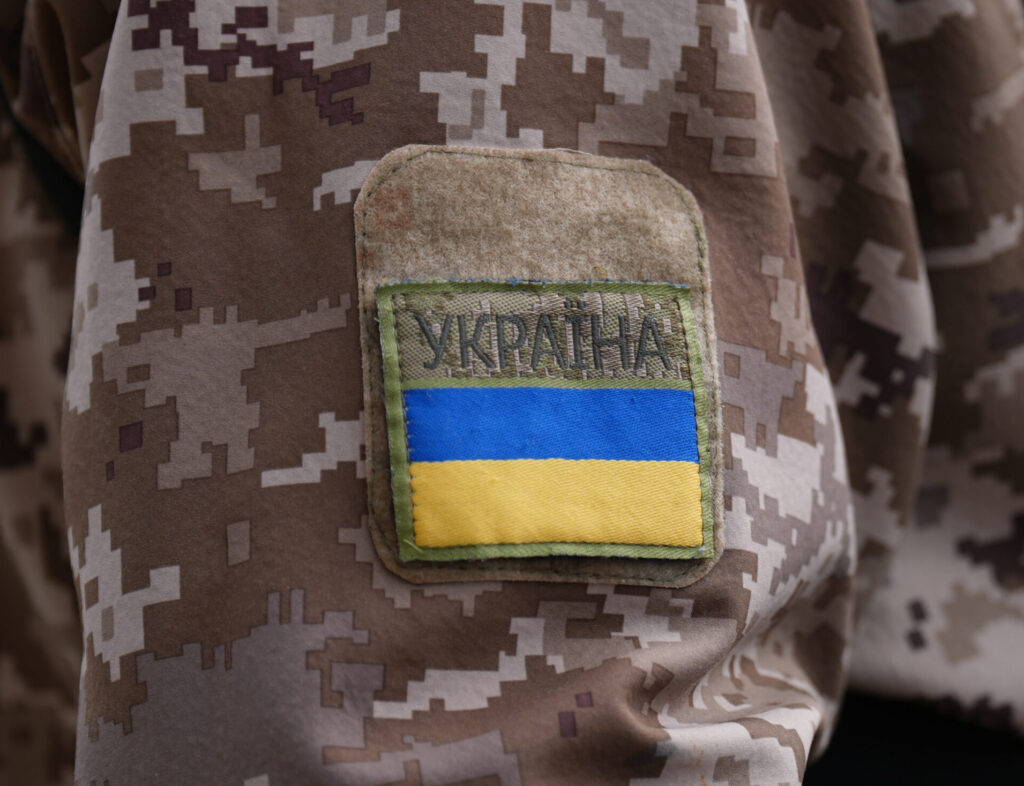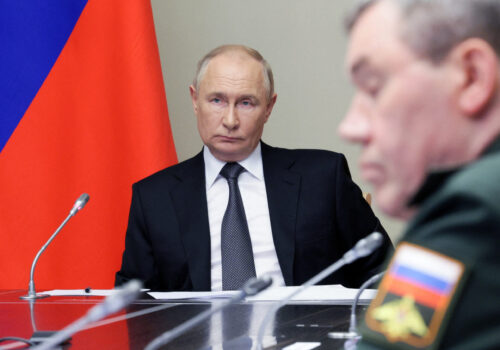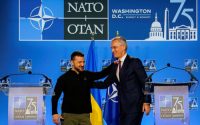
Why Ukraine will remain central to the future of European security

Although it is currently common to talk about the West as a unitary actor in the context of the Russian-Ukrainian War, the stakes actually differ significantly on the two opposite sides of the Atlantic. Most obviously, if Russia succeeds in Ukraine and goes further, Europe will become a battlefield. With this in mind, it makes sense in terms of security strategy to think of Europe individually as well as part of the broader Western world.
Russia’s war against Ukraine has thrown into stark relief what has long been obvious to many international relations scholars, namely that the Cold War ended more than three decades ago but left Europe with a security architecture that has gradually decayed in subsequent years and is now outdated. Mechanisms such as the OSCE and multiple arms treaties are clearly no longer effective. The sole exception here is NATO, but the alliance has been unable to put an end to Russian aggression in Ukraine.
It is therefore misleading to regard the invasion of Ukraine as an isolated problem within the framework of an otherwise stable European security environment. Instead, the current war is at least partially a consequence of the absence of effective alternative mechanisms for maintaining European security. These mechanisms are highly unlikely to emerge if Russia continues to achieve its goals in Ukraine.
Stay updated
As the world watches the Russian invasion of Ukraine unfold, UkraineAlert delivers the best Atlantic Council expert insight and analysis on Ukraine twice a week directly to your inbox.
Some believe that the key to ending the current war lies not in overpowering Russia, but in reinstating just enough mutual trust to put institutional mechanisms back in place. It is worth keeping in mind, however, that multiple attempts over the past decade to turn Russia from a revisionist power into a supporter of the security status quo failed miserably. Although neither Russia nor Europe has any interest whatsoever in going to war with each other over Ukraine, it is also obvious that their security interests do not overlap. It would therefore be unreasonable to end or curb European support for Ukraine at this stage.
The European Union’s current focus on achieving greater strategic autonomy is not just an answer to Russian aggression in Ukraine. Instead, it is best understood as part of a broader trend that is likely to remain one of the driving forces shaping EU thinking for many years to come.
As US hegemony declines, becoming autonomous in the area of defense and managing relations with unreliable autocratic regimes are increasingly important goals for the EU. Such aspirations are bound to run contrary to Russia’s interest in keeping Europe inherently weak and disunited in the face of hard security threats. In other words, if the EU is to achieve strategic autonomy, having a security dilemma with Moscow is unavoidable, regardless of Europe’s approach to the Russian invasion of Ukraine.
Eurasia Center events
Broader geopolitical considerations will also shape the future evolution of Europe’s security outlook. These considerations further underline the importance of continued European support for Ukraine.
While the EU is clearly concerned over possible changes in the US security commitment following the country’s presidential election in November, Europe’s own security rhetoric on the key long-term threat posed by China also has the potential to aggravate transatlantic ties. The wording on Beijing in Brussels is often conspicuously different from that of American hawks, with the European Union officially calling China “a partner for cooperation, an economic competitor, and a systemic rival.”
Meanwhile, as Russia’s invasion of Ukraine continues, China is using the war to expand its influence, either as a peace broker or as an aggression enabler. Despite the fact that Russian and Chinese foreign policy approaches may be different, both countries are geared toward undermining the Western-led international order. This kind of collective threat cannot be dealt with by making concessions in Ukraine, nor can it be contained by eclectic and rather soft “partner-competitor-rival” rhetoric.
Silvester Nosenko teaches international relations at the National University of Kyiv Mohyla Academy.
Further reading
The views expressed in UkraineAlert are solely those of the authors and do not necessarily reflect the views of the Atlantic Council, its staff, or its supporters.

The Eurasia Center’s mission is to enhance transatlantic cooperation in promoting stability, democratic values and prosperity in Eurasia, from Eastern Europe and Turkey in the West to the Caucasus, Russia and Central Asia in the East.
Follow us on social media
and support our work
Image: PA Images via Reuters Connect





